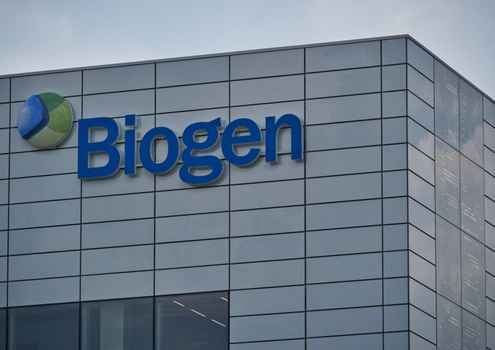Biogen’s Experimental Alzheimer’s Treatment Gosuranemab Fails Study
Another Experimental Alzheimer’s Treatment Fails in Phase II Study
Another experimental Alzheimer’s disease treatment has ended on the scrapheap of clinical failures. Biogen’s quest to develop additional medicines for Alzheimer’s disease beyond its newly-approved aducanumab has hit a clinical snag. The company’s anti-tau antibody gosuranemab failed to meet endpoints in a Phase II study and has been discontinued.
Biogen announced that gosuranemab, which had been licensed from Bristol Myers Squibb, failed to meet its primary efficacy endpoint of change from baseline at 78 weeks in patients with mild cognitive impairment due to Alzheimer’s compared to placebo based on the Clinical Dementia Rating Scale-Sum of Boxes. No treatment benefit was observed on the exploratory efficacy endpoints based on different assessments, including the Alzheimer’s Disease Assessment Scale–Cognitive Subscale, the Alzheimer Disease Cooperative Study Activity of Daily Living, the Mini-Mental State Examination and the Functional Assessment Questionnaire.
Gosuranemab is an antibody directed against the N-terminus of tau, one of the major proteins associated with Alzheimer’s disease. The other primary target for Biogen has been beta-amyloid, which was the target for aducanumab. Tau is also implicated in other diseases, including chronic traumatic encephalopathy (CTE), frontotemporal dementia, Parkinsonism, and progressive supranuclear palsy (PSP).
It was being assessed in the Alzheimer’s patient population in the Phase II TANGO study. Biogen noted in its announcement that gosuranemab demonstrated target engagement by lowering N-terminal tau in cerebrospinal fluid (CSF). That was consistent with prior studies. However, the TANGO study, gosuranemab failed to show any statistically significant treatment effect on tau-PET after 78 weeks in any treatment group.
Alfred Sandrock, head of Research and Development at Biogen, expressed disappointment in the Phase II gosuranemab study. Based on the Phase II failure, the TANGO study has been terminated.
“We know that the path to innovation is not a straight line, and that we always learn from each trial. We are investing in a broad neuroscience pipeline, including other tau approaches for Alzheimer’s disease,” Sandrock said in a statement.
Biogen said it would continue to analyze the data from the TANGO study, including CSF biomarkers. The data will be presented at an upcoming medical conference.
Gosuranemab previously failed to hit endpoints in a Phase II study for PSP. Following that study, Biogen said it was halting the gosuranemab program for PSP.
Developing therapeutics for Alzheimer’s disease has been an extremely difficult task. Multiple drugs have failed in clinical studies, including the recently approved aducanumab.
At one point, Biogen and its developmental partner Eisai intended to abandon development of the drug altogether, but a reassessment of data showed some efficacy that was the foundation for the U.S. Food and Drug Administration’s controversial approval of aducanumab, which the regulatory agency’s advisory committee had rejected. Since the approval, three members of the advisory committee have resigned. Watchdog group Public Citizen has called for the resignation of top FDA officials who were instrumental in the approval of aducanumab, including acting Commissioner Janet Woodcock.
BioSpace source:
https://www.biospace.com/article/another-experimental-alzheimer-s-treatment-fails-in-phase-ii-study




